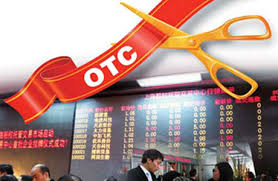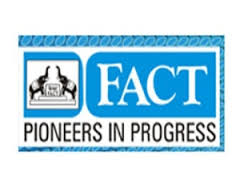Financial securities are traded in two ways either on an exchange such as NYSE (New York Stock Exchange) or NASDAQ or through Over-The-Counter (OTC) markets. Exchange is a centralized, regulated market where securities are traded in a safe, standardized, fast and publicly transparent manner. On the other hand, Over-The-Counter (OTC) market is a decentralized market, without a central physical location, where market participants trade with one another through various communication modes such as the telephone, email and proprietary electronic trading systems.
Larger established companies usually choose exchanges to list and trade their securities but many companies do not need the listing requirements for an exchange or do not want to pay the cost, these companies can have their securities traded Over-The-Counter through OTC markets. OTC trading happens through decentralized dealer networks where brokers and dealers directly negotiate with each other over computer networks and by phone. This allows smaller companies stocks and non-standardized quantities to be traded. This also means less public transparency since prices are not disclosed publicly until the trade is complete. Stocks which trade on an exchange are called listed stocks while the stocks not an exchange that are traded through OTC markets are called unlisted stocks. However there are some stocks which are traded both on exchange and OTC market.
Over-The-Counter Markets trades tend to be for smaller companies stocks and debt securities. Debt securities such as bonds are generally traded by investment bonds making markets for specific issues to save the cost of paying the exchange fees and brokerages. While OTC transactions often seem more risky and less liquid, they help companies and institutions to promote equity or financial instruments that would not have met the requirement of regulated well established exchanges.
In the United States, over-the-counter trading in stock is carried out by market makers using inter-dealer quotation services such as OTC Link (a service offered by OTC markets group) and the OTC Bulletin Board (OTCBB). The OTCBB licenses the services of OTC Link for their OTCBB securities.
Usually OTC stocks are not listed nor traded on exchanges, and vice versa. Stocks quoted on the OTCBB must comply with certain limited U.S. Securities and Exchange Commission (SEC) reporting requirements.
Some companies, with Wal-Mart as one of the largest, began trading as OTC stocks and eventually upgraded to a listing on fully regulated market. By 1969 Wal-Mart Stores Inc. was incorporated. In 1972, with stores in five states, including Arkansas, Kansas, Louisiana, Oklahoma and Missouri, Wal-Mart began trading as over-the-counter (OTC) stocks. By 1972, Walmart had earned over US$1 billion in sales — the fastest company to ever accomplish this. In 1972 Wal-Mart was listed on the New York Stock Exchange (NYSE) under the ticker symbol WMT.
Click here for government certification in Accounting, Banking & Finance





9 Comments. Leave new
Good effort
Walmart is really the premier company of OTC market!! I did not knew this..Thanks for the info
A lot of knowledge about OTC market..
Fine Work
Good article
Nice one ashpreet. good to see you here.
Very informative article
Very interesting article
OTC TRANSACTI0NS are comparitively more risky !
very well written !